8. Brooklyn
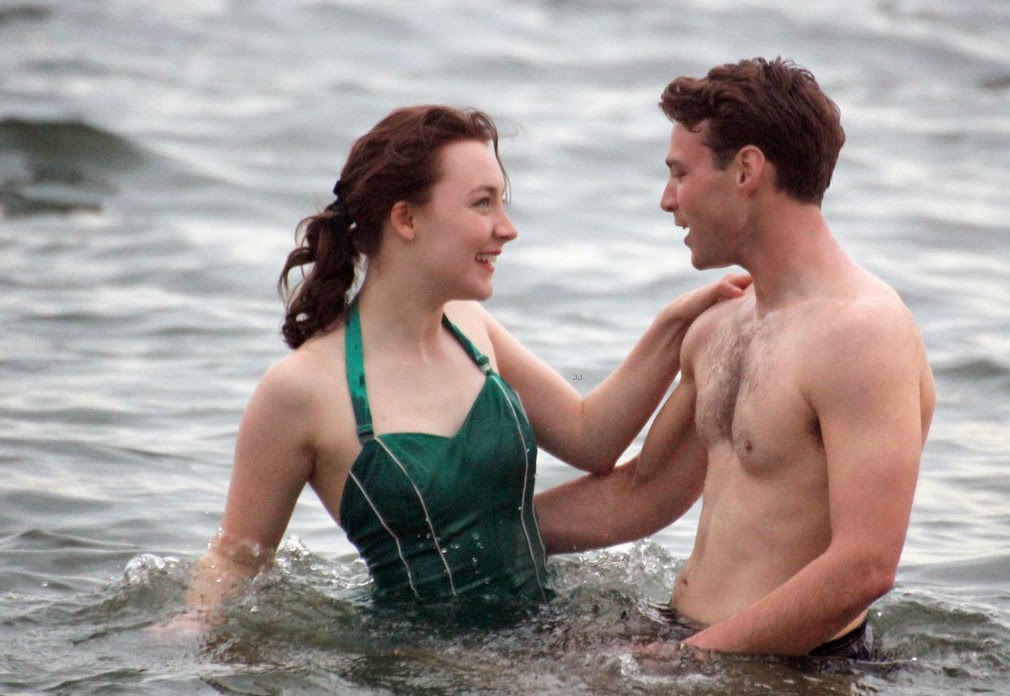
Telling the story of a young woman who, seeking more than the opportunities on offer in her small Irish town, travels to America and recounts her isolation, cultural shift and alienation in a completely different world. The showcase of the film may be Saoirse Ronan whose specific physical mannerisms so perfectly lend themselves to the role as she slowly adjusts her stance, posture and gestures as she spends more time away from home. She sustains a compelling gravitas and innocence for the entire film, but it’s in the tiny nuances that make it convincing.
Meanwhile the screenplay, adapted by Nick Hornby, may seem simplistic and basic at first. But as it progresses you realise that it perfectly captures the central themes and challenges of such a drastic cultural shift such as estrangement and independence, but inevitably the conflict as our central character begins to doubt where she belongs, her place of birth and upbringing or her new home in America.
These changes of scenario and contrast of location are emphasised within every element of the production design and directing. With Ireland being portrayed as such a meditative and quiet area, but one that also feels remarkable familiar, as if the audience is instantly at ease and at comfort there. It makes it all the more surprising when the setting shifts to New York, which in contrast is overflowing with vibrancy and energy, filmed in a way that seems to emphasise who this city never stops for a second, let alone long enough to sleep.
But the emotional impact could be Brooklyn’s best attribute. It has such a sense of romanticism that is conveyed in such a brilliantly subtle way. Each detail of the film mirror what is happening to the central character and what point she is at in her journey without any obvious transition or glaring signposting, it moves along in exactly the right pace and has so clearly been built around character and humanity that one can’t help becoming attached to it.
7. Macbeth
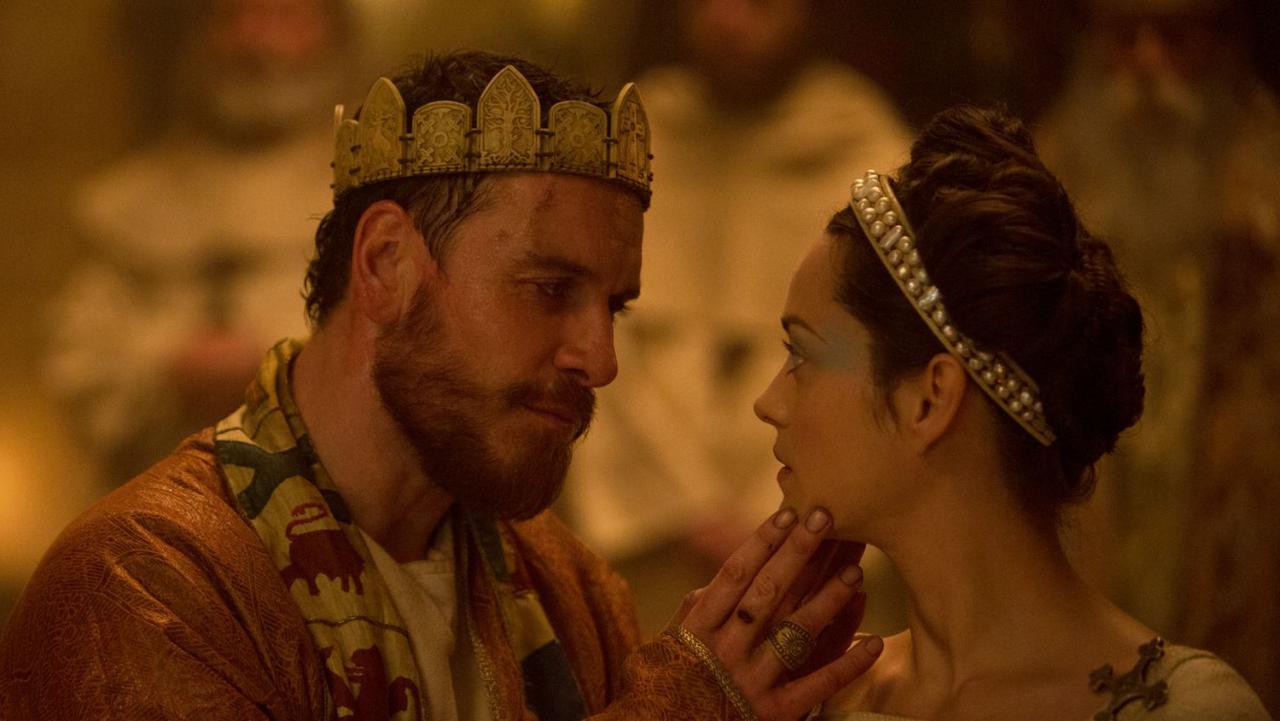
Many great filmmakers have attempted to bring William Shakespeare’s omnipotent tragedy to life on the big screen such as Akira Kurosawa and Roman Polanski and every version has been drastically different, interpreting the story of murder and obsession from a different viewpoint from an emphasis on the supernatural to a clear focus on human manipulation. Justin Kurzel’s version is unique yet again as it draws attention to the many conflicts Macbeth has participated in, and their long-lasting effect on his psyche.
While it makes the bold decision to downplay the role of Lady Macbeth (which is admittedly a shame as she’s played by Marion Cotillard) it does so to emphasise its attribution of trauma and distress, suggesting that the seeds of betrayal and greed were sewed not by the intervention of Macbeth’s wife, but by the destruction and bloodshed he witnessed in battle.
It boasts a truly towering performance from Michael Fassbender as the titular character. He comes across as such a brutal and cold anti-hero when he needs to yet also evokes a compelling sense of pity and vulnerability that it only adds to the worrying nature of his personality, the concept of such power being placed within the hands of such an unstable and tumultuous human being all the more tragic and pitiful.
The fact that Kurzel soaks so much of his film in blood and brutality makes it all the more understandable, with plenty of graphic imagery on display to highlight that point. Yet even the most violent of scenes are filled with such an undeniable beauty that this version of Macbeth can be admired from virtually any shot, it is devastatingly gorgeous and truly spectacular to behold.
6. 45 Years
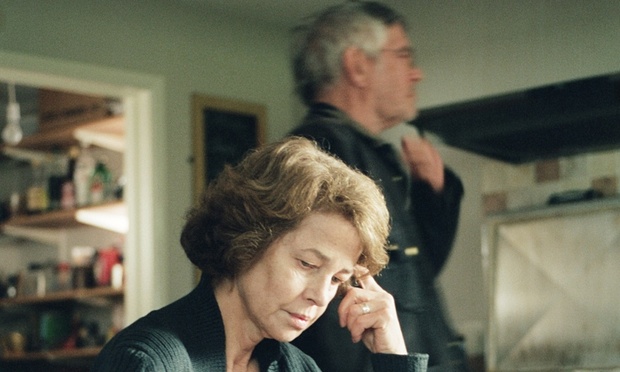
You may have heard of this film with Charlotte Rampling’s recent Oscar nomination for best actress. But if you have yet to see the film you are missing out on an emotionally brutal and tensely haunting drama of commitment and reflection. It is supported by its two main leads who boast such a sense of longevity with their chemistry on screen and emphasise the routine nature of their relationship before the plot has even begun.
The narrative centres around Kate and Geoff, a couple approaching their 45th wedding anniversary, but one day a letter arrives, informing Geoff that a former girlfriend of his has recently been discovered, preserved within ice in the Alps. As this spectre comes into the household, reawakened events from long ago end up altering their entire perspective on the present.
Above all, the naturalistic quality of 45 Years is what sets it apart. Given that the premise sounds so outlandish and bizarre the grounded and realistic events that follow it are almost surreal in comparison. The simplicity of the dialogue and surroundings all draw attention to how these two people know each other so completely and how their shift of perspective seems to draw their entire lives into question. The overall effect is almost melancholic in its tone.
The tension and distrust that arises between Geoff and Kate is not brought about suddenly, but with grace and subtlety as the week progresses leading up to their anniversary. There is barely a single compostion wasted, with every shot and edit being placed at exactly the right moment for it to have its full effect and allow the actors to speak when the direction does not. It is a painful portrayel of the persistency of the past and the instability of the present, as well as the bleakness of the future.
5. Slow West
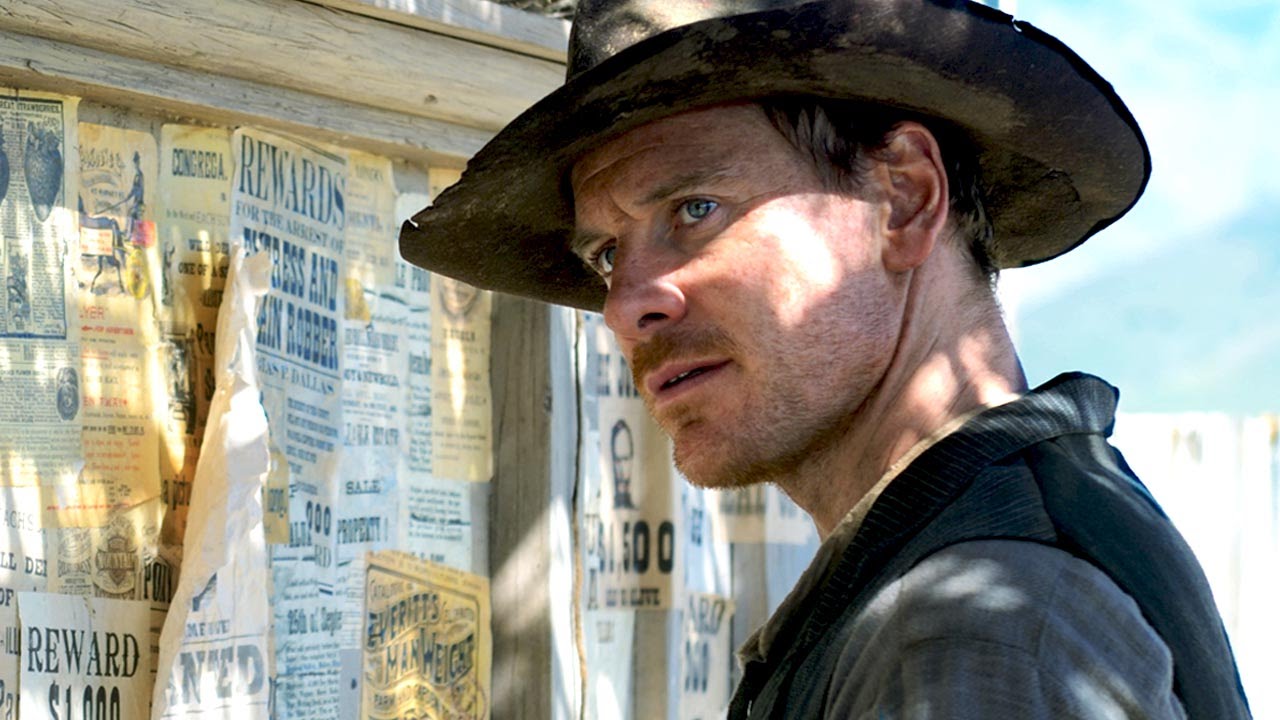
A western described by its writer and director as a ‘European road movie with fairy tale inflections that is mostly about young love’. Set in 19th Century Colorado it sees a young Scotsman played by Kodi Smit-McPhee who sets out to journey across the American frontier in search of his lost love Rose, teaming up with a hardboiled mercenary, who is an unabashed casual killer, called Silas Selleck played by Michael Fassbnder (so taking this into account, as well as Macbeth and his Oscar nominated role as Steve Jobs and it’s safe to say that 2015 was quite a year for him).
Oddly enough, the director’s description of his own film is remarkable accurate. While the film is placed within a western setting and features characters that embody the classic tropes of the genre, its themes do resonate more strongly with something out of a fantasy. The vibe I got from it was along the lines of The Princess Bride, quirky and humouress, but also completely absorbed within its own world, without any cynicism towards its own craftsmanship.
There is such a unique nature to the film that it almost becomes a satire of the western, it’s a surreal experience just as often as it is a grounded one, incorporating live music and hallucinations into the plot. Every performance is spot on, from Fassbneder’s pessimistic tough guy persona that is such a perfect parody of the classic western protagonist but also becomes a fully fleshed out character on its own, to Smit-McPhee as a brilliantly naïve counterpart.
Slow West filled with gallows humour and remains tense throughout, as well as being wonderfully witty, terrifically innovative and visually stunning. Above all else it is a film that you can admire artistically but also have a lot of fun with.
4. Amy

Following his widely acclaimed documentary on Formula 1 driver Ayrton Senna in 2010, Asif Kapadia crafted yet another harrowing account of a talent that was lost far too soon. Followin the life and death of British singer-songwriter Amy Winehouse, the film depicts Winehouse’s life largely from the standpoint of her struggle with substance abuse problems both before and after her career began to blossom, and which eventually caused her premature death.
What makes Amy especially heartbreaking is how Kapadia unearths footage of Winehouse’s early career as an aspiring songwriter, a version that few of us have seen. The jubilant and determined young musician who found joy in sharing her gifts with as many people as she could. Her slow descent into depression and substance abuse is set in direct parallel with the brutality of being in the public spotlight, paparazzi camera flashing constantly and the mass media craving for information about her.
It clearly draws attention to how these moutning pressures snuffed out those promising qualities and lead her to become a shell of what she once was. The film is also a damnation of our own public persona of celebrities and how we so rarely see the person behind the fame. Amy uses these themes as well as its intimate character study to become an immensely absorbing, sensitively constructed and devastatingly tragic documentary.
3. Kingsman: The Secret Service
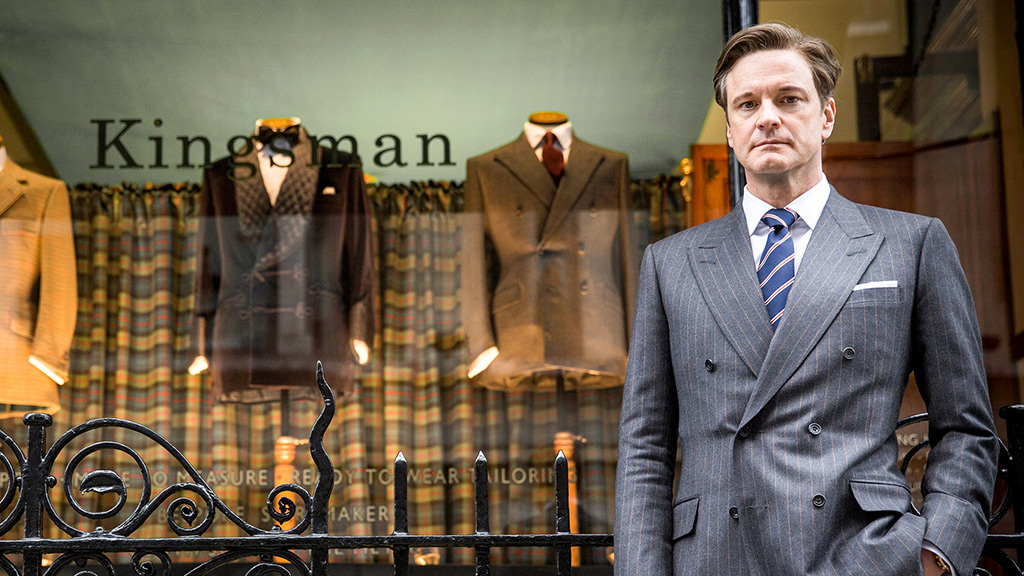
Matthew Vaughn’s love letter to the classic spy films of yesteryear is such an infectiously fun film that I defy anyone who can’t get caught up within its eccentric, violent and insane world (watch as the internet defies me now). Colin Firth recruits a diamond in the rough played by Taron Egerton to an international spy organisation known simply as The Kingsmen as they must race to stop an extravagant villain’s equally extravagant plan to bring about the end of the world.
Vaughn has such a gift for directing stylised action that it is hard to imagine a setting fitting more perfectly to his tone as a filmmaker than that of the spy genre. The way each scene is choreographed with such a visceral nature yet never becomes incomprehensible or confusing. That church scene alone is an action spectacle unlike anything else in recent memory, what is it about watching Colin Firth murder a hate group that is so satisfying?
The movie also feature the breakout role of Taron Egerton who has very rapidly risen to become one of the most talked about actors of the year, with countless reviewers speculating on what the young talent will undertake next. Colin Firth broke out of his association with rom-com’s and dramas toplay what is essentially the encapsulation of the classic British spy. The words suave and sophisticated seem too uncivilised to describe Harry Hart.
Kingsman may mock the genre occasionally and often subverts it when it wants to, but it also pays tribute to the spy genre in such a loving way that it inevitably becomes transmittable and you find yourself swept up in the eccentric gadgets, evil plots and fancy suits so completely that by the end, no matter how ridiculous the feat, each action set piece is able to draw tension and suspense even if it does defy physics.
2. High Rise
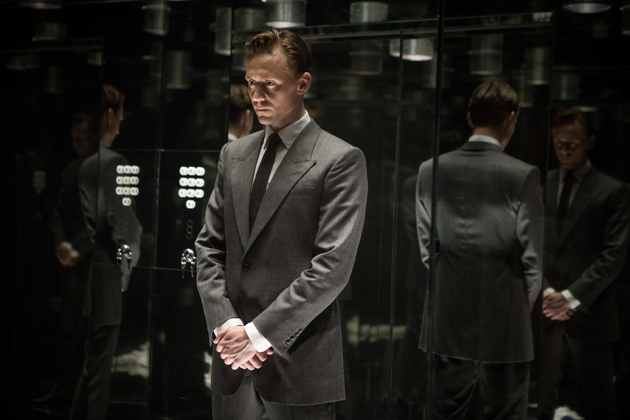
This may be a controversial choice as Ben Wheatley’s satirical take on the British class system has proved to be one of the most divisive movies of the year. Personally though, I found it to be masterful in its evisceration of society and culture that carried a distinctively brutal psychedelic quality to it.
Taking up residence in a lavish tower block, where an elite community enjoy their luxurious lifestyles, Robert Laing discovers a world of complex loyalties and varying factions that eventually leads to the community diverging into violent tribes in conflict against one another. The film is shockingly violent but it subverts that tone into a comment about contemporary culture that is darkly hilarious as frequently as it is comically disturbing. To put it in simpler terms, it’s no accident that High Rise has a few visual tributes to Kubrick’s A Clockwork Orange.
The films excellent cast are all unnerving and wonderfully satirical in their performances. Jeremy Irons is the obsessed architect, who constantly ponders over his concerns of the buildings structural integrity, wondering where he went wrong and what mistake he made. Tom Hiddlestone expertly portrays an observer to the carnage, a neutral party who is initially as baffled by the barbarism as we are. But as he gets pulled into the world he too becomes an equally unhinged and disturbed performer.
But despite those terrific performances, the central character of the film is actually the building, filmed with such menace and gravitas that the philosophical implications of what it means are mind boggling. A project that was once branded unfilmable and stalled for decades, Wheatley’s smooth construction skilfully moors the anarchy of a class system teetering on the brink of insanity.
1. Ex Machina
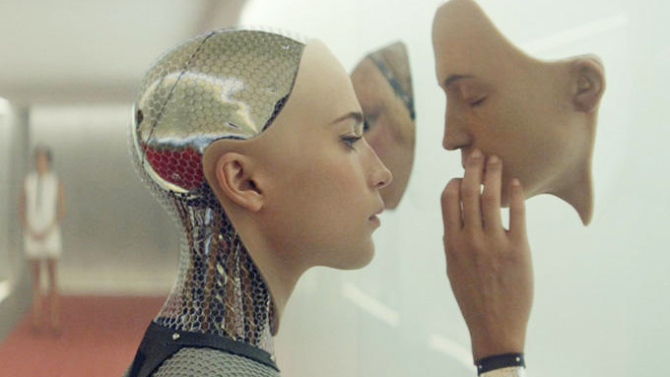
The directorial debut of screenwriter Alex Garland has more vibrant and mind-bending ideas bursting through it than most, but the fact that they are all staged on such an intimate and humane level that what Ex Machina evokes philosophically, it duplicates emotionally. A young programmer is invited to participate in an experiment by a reclusive and charismatic genius, where he is introduced to the ground breaking Ave, the worlds’ first example of artificial intelligence.
It starts out as an ominous thriller that soon delves into themes so deep that one would think Garland’s screenplay might struggle to keep a view of the surface, but instead he maintains a fixation on the characters within his story, all played superbly by Domnhall Gleeson, Oscar Isaac and Alicia Vikander (all of whom have had fantastic year in 2015 as well). Even the most shocking revelations are logical and character driven, meaning that they are satisfying as well as surprising.
Garland builds tension slowly throughout the film, drawing upon the character’s paranoia and insecurity without ever letting the pace slow down, even in the quitter moments. His script draws references from mythology, physics, history and art. It comes across as intelligent but also deeply relatable and the visual poetry of the film is on another level, as the cinematography seems to sometimes blend nature and technology as it draws parallels to the opposing forces as well as contrasting them. Ava herself is such a beautifully designed character that she is sure to go down as an icon of science fiction cinema.
Ex Machina has little to no superficial accessories of the science fiction genre, if it does it cleverly disguises them under a riveting piece of dialogue or direction, becoming endlessly inventive and flawlessly executed. It’s a film of humanity, questioning what makes us human and how technology may interact with our society. It is truly a modern masterpiece and the best British film of 2015.
Author Bio: Joshua Price considers himself more of a fan that happens to write near insane ramblings on movies and directors like Scorsese, Spielberg, Fellini, Kubrick and Lumet rather than an actual critic and other insane ramblings can be found at criticalfilmsuk.blogspot.co.uk.